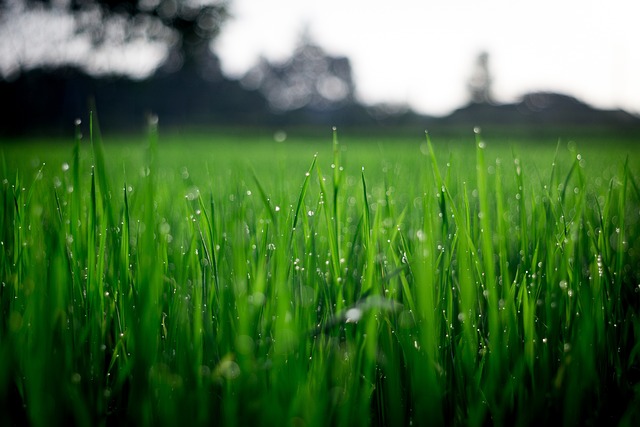Incorporating a composting area and permaculture design into your backyard creates an environmentally friendly space. It reduces waste, enriches soil, conserves water, and supports local ecosystems through native plant landscaping and drought-tolerant practices. These green backyard ideas promote sustainability, lower maintenance, and enhance outdoor aesthetics, making it an attractive option for eco-conscious homeowners.
Looking for ways to transform your backyard into a vibrant and sustainable oasis? Incorporating composting areas is an eco-conscious step towards a greener future. This article explores the benefits of adding a composting system to your outdoor space, offering practical tips on designing with native plants and drought-tolerant species. Discover permaculture principles for efficient water use and learn how to create a harmonious, sustainable backyard that nourishes both nature and your garden.
Understanding the Benefits of Composting Areas in Your Backyard
Incorporating a composting area into your backyard design offers a multitude of benefits for both your garden and the environment. It’s a key component in achieving a sustainable backyard, aligning with principles of eco-friendly landscaping and green backyard ideas. Composting allows you to recycle organic waste from your kitchen and yard, reducing landfill waste and cutting down on garbage collection costs. By turning this waste into nutrient-rich compost, you enhance soil fertility, promote healthier plants, and reduce the need for synthetic fertilizers, making it an essential part of drought-tolerant landscaping and native plant landscaping strategies.
Moreover, a well-designed backyard composting system contributes to water efficiency in your garden. Healthy, compost-enriched soils can better retain moisture, reducing the frequency of watering. This is particularly valuable in light of growing concerns about conservation. Integrating permaculture design elements with composting encourages a holistic approach to sustainable garden design, where waste becomes a resource and every element serves a purpose. This not only beautifies your outdoor space but also fosters a more harmonious relationship with nature, ensuring a greener and more resilient future for your backyard oasis.
Designing a Sustainable and Eco-Friendly Outdoor Space
Designing a sustainable and eco-friendly outdoor space is an increasingly popular trend among homeowners looking to reduce their environmental impact while enhancing their backyard aesthetics. One effective way to achieve this is by incorporating elements of permaculture design, focusing on native plant landscaping, and implementing drought-tolerant practices. Native plants not only support local ecosystems but also require less water, reducing the overall strain on precious resources. This approach aligns perfectly with the goal of creating a green backyard idea that minimizes maintenance while maximizing natural beauty.
Additionally, integrating backyard composting areas into your sustainable garden design is a practical step towards circularity and resource conservation. Composting allows you to recycle organic waste from your kitchen and garden, reducing landfill waste and providing nutrient-rich soil amendments for your plants. A well-designed composting system can be an attractive feature in itself, adding functionality and value to your outdoor space while promoting a healthier, more resilient ecosystem right in your backyard.
Incorporating Drought-Tolerant and Native Plant Landscaping
Incorporating drought-tolerant and native plant landscaping is a key component of creating a sustainable backyard. These plants are specifically adapted to local conditions, reducing the need for extra water and maintenance. Native species provide food and shelter for local wildlife, enhancing biodiversity right in your own yard. By choosing water-efficient plants, you can transform your green backyard ideas into a low-maintenance oasis that supports both the environment and your community’s ecosystem.
Permaculture design principles guide this approach, focusing on mimicking natural processes. Incorporating compost areas and using organic materials for mulch not only reduces waste but also improves soil health, ensuring a robust and resilient garden. A sustainable garden design that includes native plant landscaping and composting areas contributes to a more eco-friendly backyard, promoting biodiversity and helping to mitigate the environmental impact of urban living.
Permaculture Principles for a Water-Efficient Green Backyard
Incorporating Permaculture Principles for a Water-Efficient Green Backyard is a powerful way to enhance your outdoor space while contributing to environmental sustainability. At its core, permaculture design emphasizes ecological balance and efficient resource use, making it an ideal framework for creating a beautiful and eco-friendly oasis in your backyard. One of the key aspects is focusing on drought-tolerant landscaping, which not only conserves water but also reduces maintenance requirements. By selecting native plant species adapted to local conditions, you can create a vibrant and low-maintenance garden that provides habitat for indigenous wildlife.
Additionally, implementing green backyard ideas such as composting areas and rainwater harvesting systems further contributes to sustainable garden design. Composting offers an effective way to recycle organic waste from your kitchen and garden, enriching the soil and reducing waste sent to landfills. Integrating a composting system into your backyard design not only promotes circularity but also fosters a healthier ecosystem. These practices collectively transform your outdoor area into a thriving, water-efficient space that benefits both the environment and your local ecosystem.
Incorporating a composting area into your backyard design offers a wealth of benefits for both your garden and the environment. By embracing sustainable practices like permaculture and eco-friendly landscaping with native plant choices, you can create a lush, water-efficient green backyard. Drought-tolerant plants reduce water usage, while proper compost management enriches soil health and reduces waste. These simple yet powerful changes turn your outdoor space into a vibrant ecosystem that contributes to a more sustainable future, making it the perfect place to grow both your plants and your eco-consciousness.
